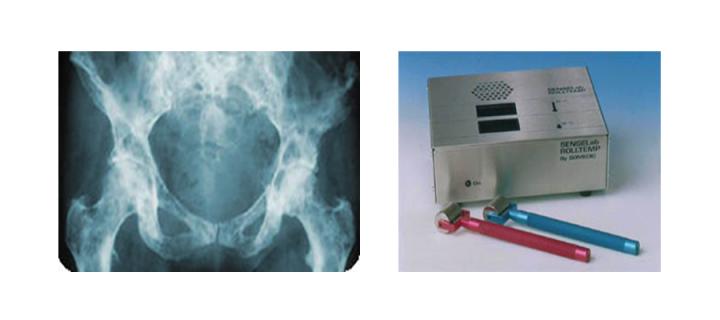A new study on bone pain related to cancer has opened in Edinburgh.
An exploratory study to develop and evaluate a simple bedside tool for community use to identify who is most likely to benefit from palliative radiotherapy for cancer induced bone pain: Thermal testing in Bone Pain (TiBoP).

If cancer spreads to bones it can be very painful, especially when trying to move around. One of the best treatments is radiotherapy, which has to be given in a cancer centre, usually needing about 5 visits for treatment. Even with this treatment, only about half of people will get good pain relief, and that can take up to 6 weeks to work fully. If we know who is unlikely to benefit then we can explore other forms of pain relief sooner, without having to go through radiotherapy unnecessarily.
Our research team found that there may be a very simple way to tell who is likely to get good pain relief, using a test of how warm and cool sensations are fit on the skin over the painful bone. This was part of a very detailed study we did in patients when they were in the Edinburgh Cancer Centre.
We need to find out:
- is it possible to do this test outwith a hospital setting, so that a nurse could do it in a patient's home?
- how good is it, when used in this way, at helping identify who is going to get good pain relief from radiotherapy?
Patients(>18 years old) attending the Edinburgh Cancer Centre and scheduled for palliative XRT for treatment of CIBP may be eligible.
For more information please contact:
Professor Lesley Colvin, Consultant in Anaesthesia and Pain Medicine lesley colvin@ed.ac.uk Tel: 0131 651 8606
or
Professor Marie Fallon, Professor of Palliative Care marie.fallon@ed.ac.uk Tel: 0131 651 8594
Research Team
Prof Lesley Colvin, Prof Marie Fallon, Dr Tonje Sande and Dr Barry Laird

